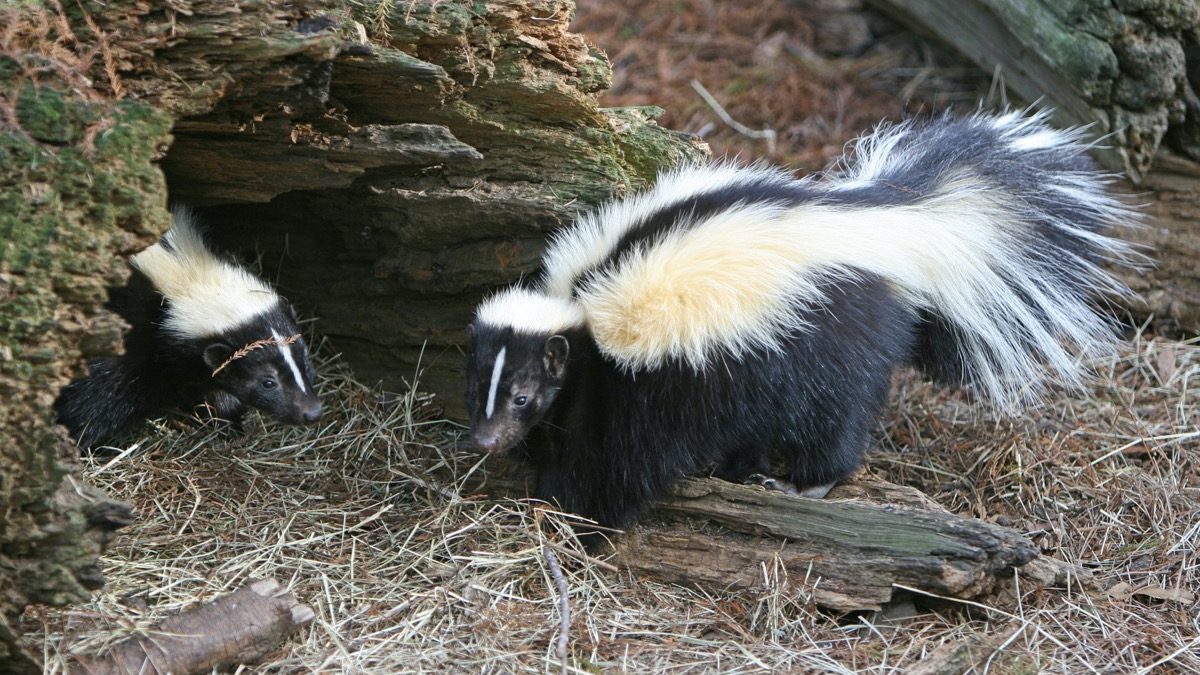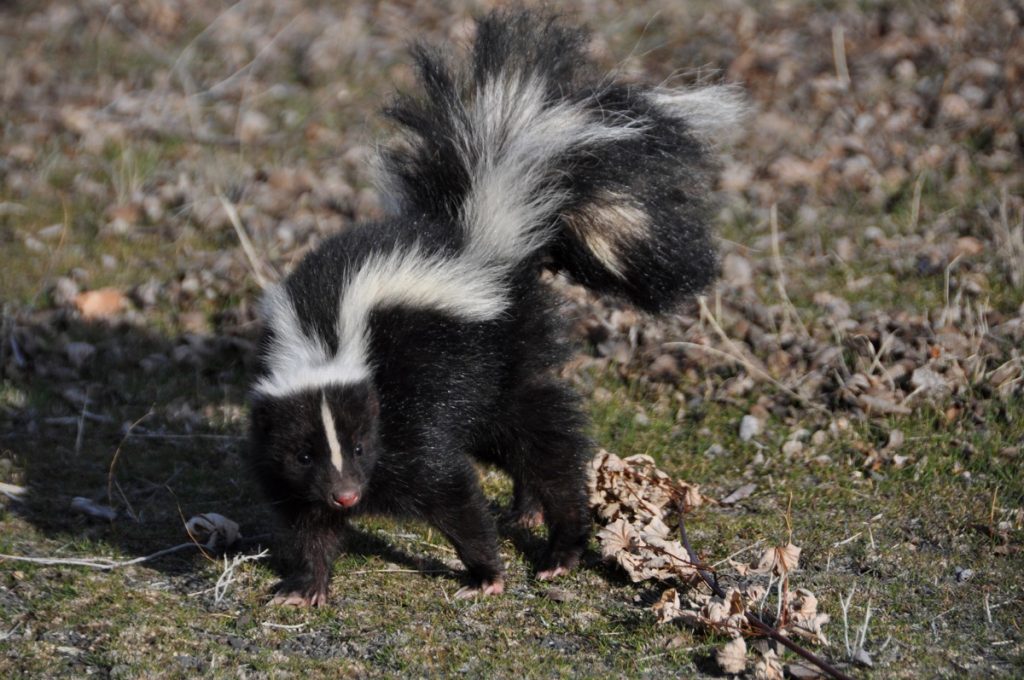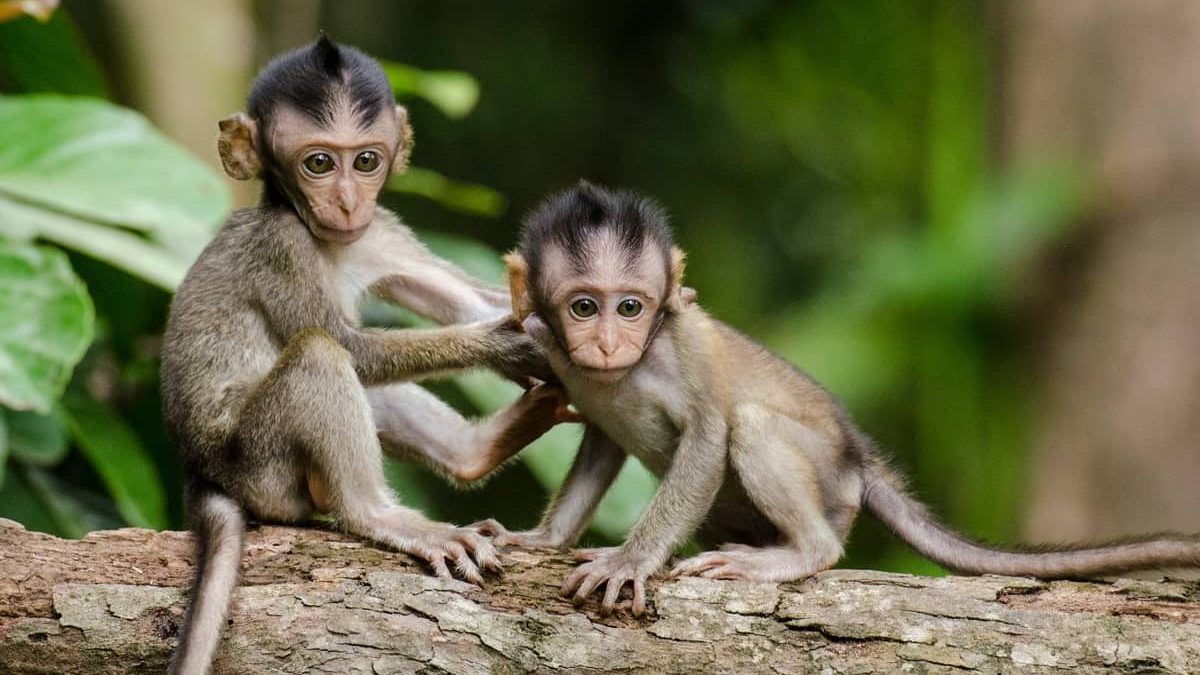
Where Do Skunks Sleep?
Have you ever crossed paths with a skunk at night, its black and white stripes gleaming under the moonlight? These curious creatures are nocturnal, meaning they’re most active after sunset. But where do they spend their days catching up on sleep? And what about those chilly winter months? Buckle up, because we’re diving into the fascinating world of skunk slumber!
Nighttime Dens: Home Sweet Burrow
When the sun dips below the horizon, skunks transform into furry ninjas, slinking out of their cozy dens to forage for food. But where do they build these nighttime hideouts? Skunks are resourceful nesters, opting for a variety of comfy crash pads:
- Burrows: Digging is a skunk’s specialty! They use their strong claws to create cozy burrows underground, often under abandoned buildings, woodpiles, or even your porch. These burrows offer protection from predators and the elements.
- Natural shelters: Fallen logs, hollow trees, and rock crevices are all prime real estate for sleepy skunks. These pre-made hideouts provide instant shelter without the need for digging.
- Abandoned homes: Skunks aren’t picky! They might take up residence in an empty shed, crawlspace, or even an old animal burrow. Just like you, they appreciate a roof over their heads (or paws, in this case).
Daytime Doze: Sunbathing and Snoozing
After a night of exploring and snacking, skunks need to recharge. But where do they go during the day when the sun is shining? These striped snoozers have a few favorite daytime napping spots:
- Brush piles and thick vegetation: Dense foliage offers excellent camouflage and protection from curious eyes. Skunks curl up amongst the leaves and branches, enjoying a peaceful siesta.
- Underneath structures: Porches, decks, and even abandoned cars provide shady havens for skunks to snooze away the day. They love a cool, dark spot to escape the midday heat.
- Right in your backyard! Don’t be surprised if you spot a skunk snoozing under your deck or in a pile of brush. As long as they’re not causing trouble, let them enjoy their nap – after all, everyone deserves a good rest!
Winter Slumber: Huddling for Warmth
While skunks don’t hibernate like true champions of sleep (bears, we’re looking at you!), they do become less active during the winter months. The cold weather zaps their energy, so they spend more time curled up in their dens, conserving precious body heat. Here’s how they stay cozy during the winter chill:
- Huddling together: Skunks are surprisingly social creatures. During the winter, they might huddle together in their dens for extra warmth. Imagine a pile of fluffy, striped marshmallows snuggled up for a nap – that’s basically a winter skunk den!
- Burning fat reserves: Skunks build up fat stores during the fall to fuel their bodies through the winter. This internal furnace keeps them warm even when the temperature drops.
- Short foraging trips: Even in winter, skunks need to eat. They might venture out on sunny days for short foraging trips, but they’ll quickly retreat back to their den if the temperature plummets.

Skunk Sleep Secrets: Fun Facts and ZZZ’s
Now that you know the where and why of skunk snoozing, let’s explore some fun facts about these striped sleepers:
- Skunks are light sleepers: Don’t tiptoe around a skunk den! They have a keen sense of smell and hearing, so any disturbance will likely wake them up.
- They sleep in cycles: Just like us, skunks have light and deep sleep cycles. They might snooze for a few hours, wake up for a snack, then curl up for another round of Zzz’s.
- They dream (maybe): Scientists aren’t sure if skunks dream, but some experts believe that all mammals experience REM sleep, which is linked to dreaming. So, who knows, maybe your backyard skunk is dreaming of juicy grubs and delicious beetles!
Living in Harmony with Striped Sleepers
Skunks might have a reputation for their pungent spray, but they’re generally harmless creatures. If you find a skunk den on your property, there’s no need to panic. Here are some tips for living in harmony with these striped snoozers:
- Respect their space: Avoid disturbing their dens or trying to remove them yourself. Contact a wildlife professional if you have concerns.
- Make your property less attractive: Remove brush piles and seal up any potential den openings to discourage skunks from taking up residence.



